PRESENTERS, PANELISTS AND CHAIRS

Marilyn Albert, PhD
Marilyn Albert, PhD, is Professor of Neurology and Director of the Division of Cognitive Neuroscience in the Department of Neurology at Johns Hopkins University School of Medicine. She is also the Director of the Johns Hopkins Alzheimer’s Disease Research Center.
Her research focuses on understanding the cognitive and brain changes in aging and neurodegenerative disorders such as AD. Dr Albert’s research aims to identify the relationship between biomarkers based on imaging, cerebrospinal fluid, blood and genetics to cognitive changes and the early diagnosis of AD. Her research was the first to show the characteristic feature of delayed recall in AD.
Dr Albert’s work on the examination of risk and protective factors in progression from normal cognition to mild cognitive impairment incorporates the important concept of cognitive reserve. More recently her work has combined longitudinal studies with biomarkers and cognitive test scores to characterize the progression across the AD continuum.

Audrey Branch, PhD
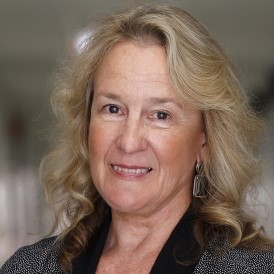
Carol A Barnes, PhD
Carol A. Barnes is a Regents Professor in the Departments of Psychology, Neurology and Neuroscience, the Evelyn F. McKnight Endowed Chair for Learning and Memory in Aging, and Director of the Evelyn F. McKnight Brain Institute at the University of Arizona. She earned her BA in Psychology from the University of California at Riverside, and her MA and PhD from Carleton University in Ottawa, Canada. She did postdoctoral training in neurophysiology in the Department of Psychology at Dalhousie University, The Institute of Neurophysiology, University of Oslo, and in the Cerebral Functions Group at University College London.
Barnes is past-president of the 38,000-member Society for Neuroscience, a Fellow of the American Association for the Advancement of Science, an elected member of the National Academy of Sciences, and an elected Foreign Member of the Royal Norwegian Society of Sciences and Letters. She is the recipient of the 2013 Gerard Prize in Neuroscience and the 2014 American Psychological Association Award for Distinguished Scientific Contributions.
The central goal of Barnes’ research program is to understand how the brain changes during normative aging and what the functional consequences of this are for information processing and memory. Her research program involves behavioral, electrophysiological and molecular biological approaches to the study of young and aged rodents and non-human primates. This work provides a basis for understanding the basic mechanisms of normal brain aging, a prerequisite for a deeper understanding of neurodegenerative diseases that occur during aging. Most recently she is the PI of a large project (the Precision Aging Network) that studies normative human brain aging, with the goal of discovering methods to optimize cognitive healthspan across the lifespan. Working with interdisciplinary teams she has published a number of manuscripts that are now classic references on brain aging and behavior (285 total, H index 112).
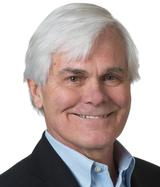
John Disterhoft, PhD
John Disterhoft, PhD, has extensive research experience investigating the neural mechanisms of learning in young and aging animals, and in learning deficits associated with aging and Alzheimer’s Disease. The portion of his research program investigating slow outward currents during learning in aging has received two consecutive MERIT award designations from the National Institute on Aging. The competing renewal of his research program to investigate the synaptic changes occurring in aging hippocampus using cutting edge molecular and 2P imaging approaches was recently renewed. The other portion of his research program involves studying the activity of many single neurons in conscious animals during learning and memory consolidation.
Dr Disterhoft directs the Northwestern University NIA funded predoctoral and postdoctoral training program on Mechanisms of Aging and Dementia, is Associate Director of the Northwestern University Alzheimer’s Disease Center and is Executive Director of the Northwestern University Behavioral Phenotyping Core. He possesses a combination of scientific, administrative, and extensive mentoring experience that qualifies him to serve as a faculty mentor. Dr Disterhoft has mentored more than 20 graduate students and 25 postdoctoral fellows during his scientific career.
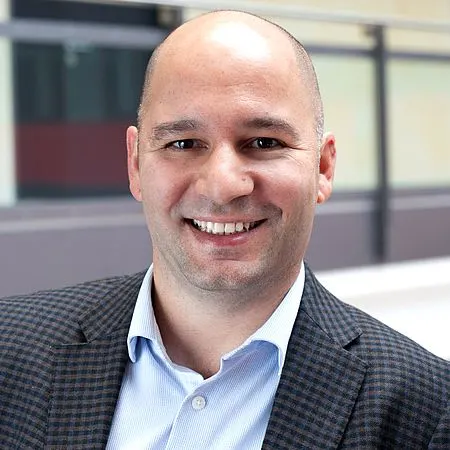
Emrah Düzel, MD,
Emrah Düzel, MD, is Professor of Cognitive Neurology and Director of the Institute of Cognitive Neurology and Dementia Research at the Otto-von-Guericke University Magdeburg. He is also part of the German Center for Neurodegenerative Diseases (DZNE), Magdeburg site as well as part-time Professor of Cognitive Neuroscience and Group Leader at the University College London, Institute of Cognitive Neuroscience.
He was trained as a neurologist in Bonn and Magdeburg, and has a long-standing interest in the functional anatomy of human memory networks, neuromodulatory circuits, their alterations in aging and neurodegeneration and their scope for plasticity.
Dr Düzel coordinates the German National Neuroimaging Network within the German Center for Neurodegenerative Diseases (DZNE) which strategically unifies imaging efforts across eight German universities and DZNE sites (Magdeburg, Bonn, Berlin, Tübingen, Munich, Rostock, Dresden, Göttingen). His research goal is to improve the diagnosis and therapy of cognitive dysfunction in old age and in neurodegenerative conditions.

Thomas Foster, PhD
Thomas Foster, PhD, is the Evelyn F. McKnight Chair For Research On Cognitive Aging And Memory at University of Florida.

Christian Habeck, PhD
Christian Habeck, PhD, originally trained as a Particle Physicist in the UK, completing his studies with a PhD in 1998 from the University of Sussex. During the last years of his graduate training, he became interested in the Neurosciences, leading him to move to the Neurosciences Institute in San Diego in 1998, spending 2.5 years pursuing large-scale neural networks models of the cat thalamocortical system as Postdoctoral Fellow under the guidance of Gerald Edelman.
In 2000, Dr Habeck moved to Columbia University and joined the Cognitive Neuroscience Division of the Taub Institute. He specializes in multivariate data analysis of PET and fMRI brain imaging data for the purposes of basic research and early detection of Alzheimer’s Disease. His general interests concern robustness and replication of empirical inference in neuroimaging.

Scott M. Hofer, PhD
Scott M. Hofer, PhD, is Director of the Institute on Aging and Lifelong Health, Professor of Psychology, and holds the Harald Mohr, MD and Wilhelma Mohr, MD Research Chair in Adult Development and Aging at the University of Victoria. He is Past President of Division 5 (Quantitative and Qualitative Methods) of the American Psychological Association, Past President of the Society of Multivariate Experimental Psychology, and a Fellow of the Academy of Behavioral Medicine Research, American Psychological Association, Canadian Academy of Health Sciences, Gerontological Society of America, and the Royal Statistical Society. In 2016, he received an honorary doctorate from the University of Gothenburg.
Dr Hofer’s research has focused on the replicability and generalizability of results from longitudinal studies in the psychological and health sciences, with particular emphasis on integrative data analysis and innovations in study design and measurement. He is Program Director of the NIH-funded Integrative Analysis of Longitudinal Studies on Aging and Dementia (IALSA) research network, comprising over 130 longitudinal studies, for international comparative research and synthesis of results. He has used intensive measurement designs to evaluate the within-person day-to-day dynamics among cognitive and physical health to better enable the assessment and identification of critical changes in functioning and to increase the potential for effective intervention. As Scientific Lead of the Neil and Susan Manning Cognitive Health Initiative, he and his colleagues are leveraging digital technologies to improve the assessment of neurocognitive and patient-reported outcomes into the home and clinic to enable earlier and more accurate detection of change and improve the diagnosis and treatment of individuals with dementia.

Matt Huentelman, PhD
Dr Matt Huentelman (pronounced: “Hun’-till-man”) is a Professor, and the Division Director of the Neurogenomics Division at the non-profit Translational Genomics Research Institute (or “TGen”) in Phoenix, Arizona. His research interests center on the investigation of the molecular basis of human nervous system health and disease. The ultimate goal of his research is to personalize our medical approach to aging and enable an individualized optimization of brain health in order to facilitate successful cognitive aging. This modern approach to brain aging – termed “Precision Aging” – will enable human cognitive healthspan to better match our lifespan and dramatically reduce the burden of age-related brain diseases on the population.
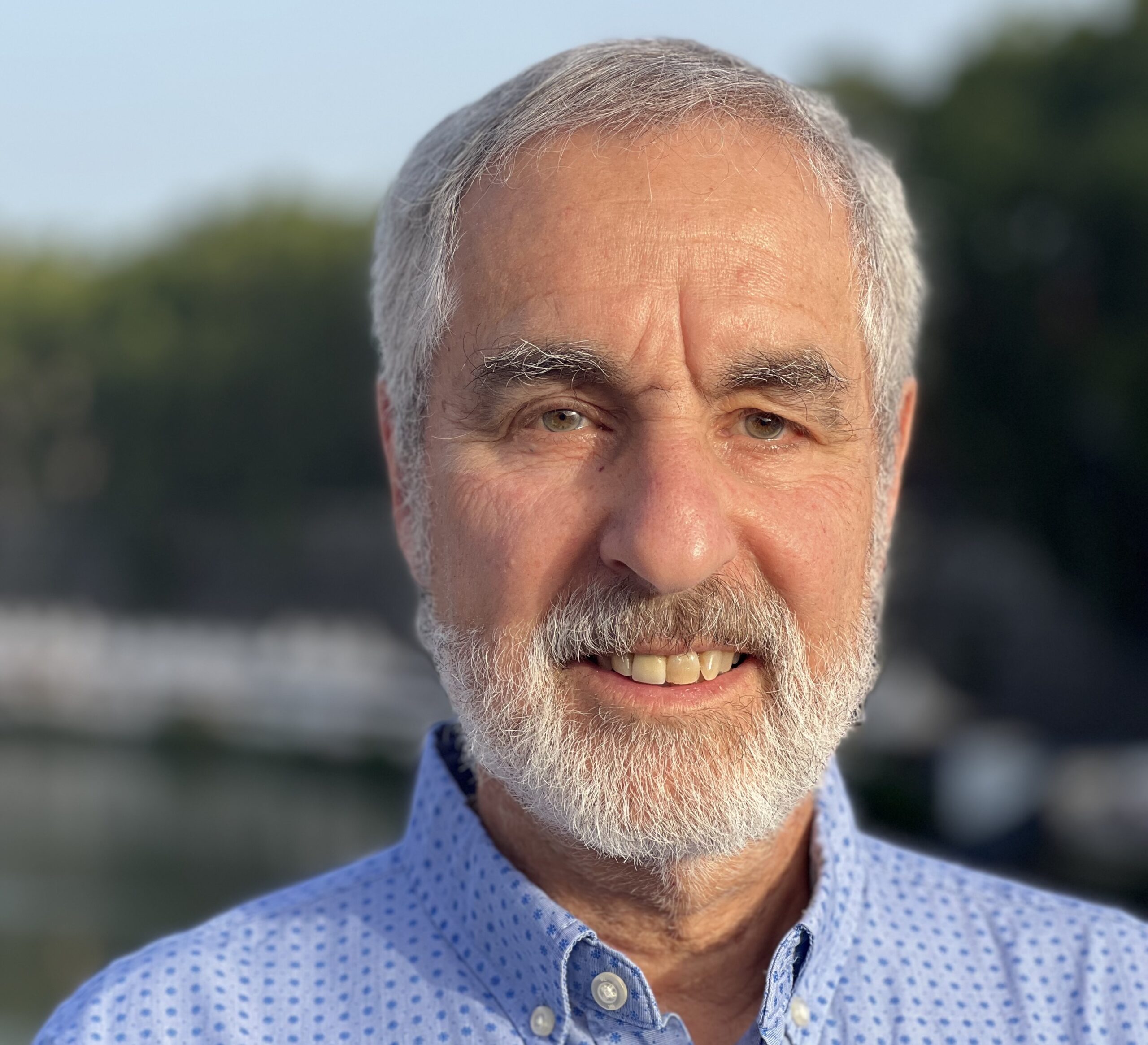
William Jagust, PhD
Dr William Jagust is a Professor of Public Health and Neuroscience at the University of California, Berkeley, and a Faculty Senior Scientist at Lawrence Berkeley National Laboratory. He was previously the Chair of the Department of Neurology at the University of California, Davis and founding director of the UC Davis Alzheimer’s Disease Center.
Dr. Jagust’s career has been focused on understanding the aging brain, and particularly the borderland between normal cognitive aging and Alzheimer’s disease. His laboratory has pioneered in the use of multimodal imaging to understand brain aging and Alzheimer’s disease, employing positron emission tomography (PET) to measure beta-amyloid and tau proteins in the brain, and magnetic resonance imaging (MRI) to investigate how these protein aggregates affect neural function and structure. His laboratory leads the PET component of numerous multicenter studies including the Alzheimer’s Disease Neuroimaging Initiative, the POINTER imaging study, SCAN, and the HEAD project. He is a recipient of the 2013 Potamkin Prize for Research in Pick’s, Alzheimer’s and Related Diseases.
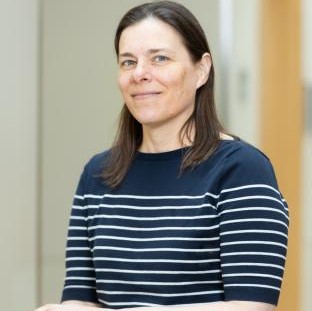
Catherine Kaczorowski, PhD
Catherine Kaczorowski, PhD, currently serves as the director of The Kaczorowski lab, which seeks to identify genetic factors and molecular mechanisms controlling resilience to brain aging and Alzheimer’s Disease using a large cohort of mice specifically designed to best model the genetic and phenotypic variation of human populations. The group leverages multi-scale mouse and human datasets, along with validation studies in murine models. They have proof-of-concept data showing that their innovative strategy can accelerate the discovery of novel genetic variants and mechanisms highly relevant to the development of resilience to normal brain aging and AD. Their recent publications in Neuron, Aging Cell, and Neurobiology of Aging serve as examples of their workflow and cross-species translation. This work garnered national attention during a press conference on aging at the Society for Neuroscience meeting in Chicago. It was featured in an article titled Can Common Genetic Variation in Mice Nail Genes of Aging, Alzheimer’s?’ published on Alzforum.
Dr Kaczorowski’s collaborative inter-institutional research program adopts a multidisciplinary approach to address the problem from multiple angles simultaneously. The Lab’s extensive collaborative interactions broaden both the scope and impact of its work, providing lab members with a variety of complementary training opportunities. One such collaboration is focused on creation of mouse models that better reflect the complexity of Alzheimer’s Disease-Related Dementias by “designing” mice that display pathologies produced by complex interactions between genetic and environmental influences. In a related and integrated effort, the Lab is also directly involved in the JAX Center for Alzheimer’s and Dementia Research, using state-of-the-art computational approaches for genomic analysis and molecular engineering to “build” predictive mouse models that better emulate Alzheimer’s Disease in humans.
The Kaczorowski Lab has extensive expertise in various fields, including systems genetics, in vivo and in vitro electrophysiological recording, proteomics, viral-based gene transduction, and sophisticated analytical/computational genomic techniques, including single nuclear sequencing. The Lab’s ongoing projects aim to address different aspects of our central question. They receive funding from various sources, including NIH grants and private foundations such as the Alzheimer’s Association.

Jonathan W. King, PhD
Jonathan W. King received his PhD in cognitive psychology from Carnegie Mellon University. His postdoctoral work in cognitive neuroscience at the Department of Cognitive Science at the University of California San Diego focused on language processing and working memory in both younger and older adults. Dr King later served on the faculty in the Department of Psychological Sciences and the Interdisciplinary Neuroscience Program at the University of Missouri. In 2006, he joined the Biobehavioral and Behavioral Processes Integrated Review Group at the Center for Scientific Review at NIH, and in 2007 he became a program director in the Division of Behavioral and Social Research at NIA. Dr King’s portfolio includes grants on cognitive epidemiology as well as molecular and behavior genetics.
While at NIA, he has coordinated new initiatives in interventions to remediate age-related cognitive decline, and behavioral economic approaches to behavior change. In 2020, he became the Senior Scientific Advisor to the Director of the division. Dr King is also currently the NIH Project Scientist for several cooperative agreements, including the Health and Retirement Study, and was formerly the Co-Coordinator for the NIH Science of Behavior Change Common Fund effort.

Jenny Larkin, PhD
Jennie Larkin, PhD, is the Deputy Director of the Division of Neuroscience at the National Institute on Aging (NIA), bringing expertise in neuroscience, open science, and data science to NIA. Dr Larkin was previously the Director of the Office of Research Evaluation and Operations (OREO) at the National Institute of Diabetes and Digestive and Kidney Diseases (NIDDK). There she also led the NIDDK Data Management and Data Science Working Group and served on multiple trans-NIH data science and data policy working groups.
Prior to her position as OREO Director, Dr Larkin was Senior Advisor to the NIH Associate Director for Data Science Dr Phil Bourne, PhD, where she was responsible for coordinating extramural activities and strategic planning for the Big Data to Knowledge (BD2K) program. Before managing the BD2K program, she was a Program Director at the National Heart, Lung, and Blood Institute (NHLBI). There she was responsible for a diverse portfolio comprising data science, computational biology and mathematical modeling, and genomics, while serving as a coordinator for the Common Fund’s Library of Integrated Network-Based Cellular Signatures (LINCS) program. Throughout her time at NIH, she has been a leader in data sharing and has served as an expert reviewer for numerous NIH data science programs.
Her research prior to joining NIH included functional genomics at The Institute for Genomic Research, neuroendocrinology and circadian rhythms at University of California at Berkeley, and comparative neurophysiology of hibernation and sleep at Stanford University. She earned a PhD from Stanford, a MS in zoology from the University of Washington, and an undergraduate degree in biological sciences from Wellesley College and the University of Cambridge.

Peter Rapp, PhD
Peter Rapp, PhD, is Chief of the Neurocognitive Aging Section and Senior Investigator in the Laboratory of Behavioral Neuroscience at the National Institute on Aging (NIA) Intramural Research Program. His research centers on the cognitive and neurobiological effects of aging in preclinical animal models, including rats and monkeys.
Dr Rapp is well known for establishing a widely used rat model of cognitive aging and advancing a non-human primate model of cognitive aging. In the preclinical animal models, Dr Rapp’s research recognized that neuron death is neither a consequence of aging, nor required for the age-related cognitive impairment and therefore the relative changes in cognitive aging is subtle rather than dramatic neuron loss.
Advancing his research, Dr Rapp has active collaborations which have identified key neurobiological signatures of age-related cognitive impairments. His body of work suggests that successful healthy cognitive aging arises from a process of neuroadaptation that could lead to interventions towards effective aging.

Yaakov Stern, PhD
Yaakov Stern, PhD, (Workshop Chair) is Chief of the Cognitive Neuroscience Division, Department of Neurology and Professor of Neuropsychology, Gertrude H. Sergievsky Center and Taub Institute for Research on Alzheimer’s disease and the Aging Brain at Columbia University Medical Center.
Dr. Stern’s research focuses on cognition in normal aging and diseases of aging, particularly AD. A strong theme of his research has been exploring individual differences in task performance in general and more specifically the reason why some individuals show more cognitive deficits than others in the face of brain insult. This has led to the cognitive reserve hypothesis, which provides rationale for intervening to improve cognitive aging.
Dr. Stern has provided some of the earliest epidemiologic evidence and developing the theory of cognitive reserve, differentiating it from other important concepts such as brain reserve and brain maintenance. His lab is involved in several ongoing, large scale imaging studies of cognition in normal aging, studies of heterogeneity of AD and epidemiologic studies of aging, AD incidence and progression.
Dr. Stern’s research approach includes classic neuropsychological and cognitive experimental techniques, with strong focus on functional imaging.

Molly Wagster, PhD
Molly Wagster, PhD, serves as the NIH Project Officer for the development of the NIH Toolbox for Assessment of Neurological and Behavioral Function (contract supported by the NIH Blueprint for Neuroscience Research). In this role, she directly manages a portfolio of research in mechanisms of cognitive (memory, learning, attention, language) and affective (emotion) change with age, spanning research from molecules to behavior. Additionally, Dr Wagster oversees the administration and development of research in cognitive and emotional change with age and in sensory and motor disorders of aging. She also directs the trans-NIH Cognitive and Emotional Health Project.
Dr Wagster came to the NIA from the Department of Pathology, Division of Neuropathology, at The Johns Hopkins University School of Medicine. For more than a decade, Dr Wagster investigated neural mechanisms of learning and memory changes with age in animal models and studied changes in neuroreceptor mechanisms in relation to cognitive decline in neurodegenerative diseases such as Alzheimer’s disease and Huntington’s disease. Her research interests centered on individual differences with age in cognitive domains. Dr Wagster held a joint appointment in the Department of Psychology at The Johns Hopkins University, where she taught both Psychopharmacology and the Biological Basis of Learning and Memory and was a lecturer in the team-taught course Psychology of Aging.
Dr Wagster received her MS and PhD degrees in Experimental Psychology (Behavioral Neuroscience) from Tulane University and completed a postdoctoral fellowship in Neuropathology at The Johns Hopkins University School of Medicine.
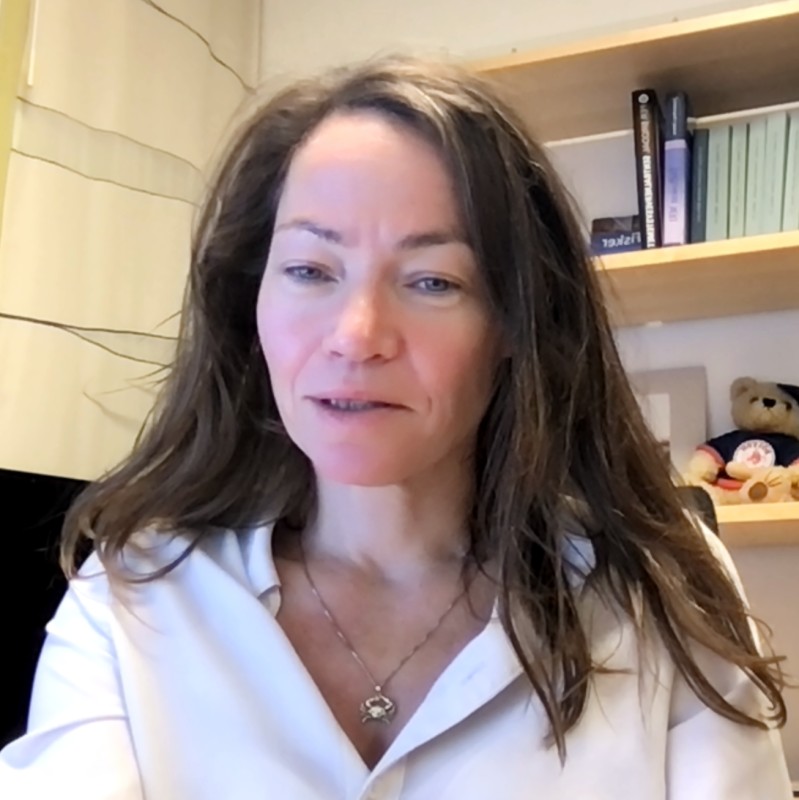
Kristine Beate Walhovd, PhD
Kristine Beate Walhovd, PhD, holds the position of Professor of Cognitive Neuropsychology, and also works as a part-time researcher at the Department of Neuropsychology, Ullevål University Hospital. Her current research focuses on understanding the mechanisms underlying various types of changes in brain and cognition, as well as exploring ways in which we can initiate, enhance, or slow down these processes.
Together with colleagues, Dr Walhovd seeks to discover markers and mechanisms underlying changes in brain and cognitive behavior throughout the lifespan. To this end, she and her team study persons ranging in age from 4 to 90 years. She is keenly interested in understanding normal cognition and brain-behavior relationships throughout the human lifespan, and is also involved in such patient studies as subjective and objective memory complaints, Alzheimer’s disease, and drug exposure in utero. Dr Walhovd’s main research methods include, among others, experimental and standardized neuropsychological tests, MRI (mostly morphometry and DTI) and ERP (Event-Related-Potentials).
